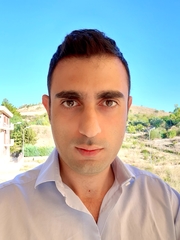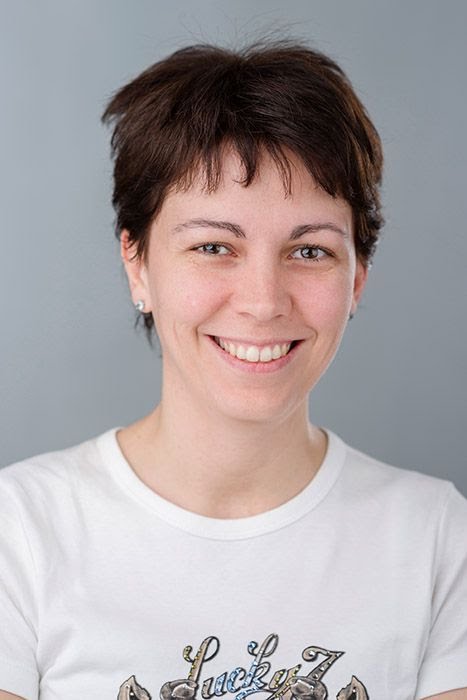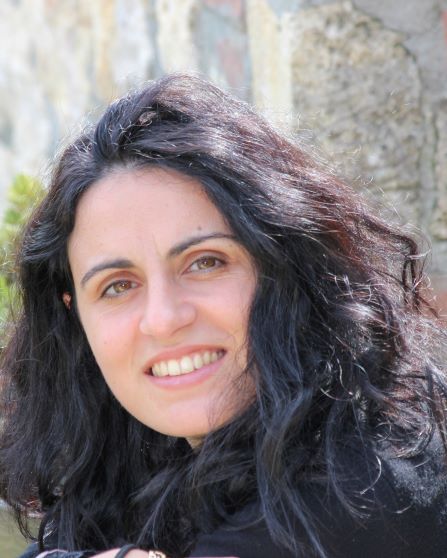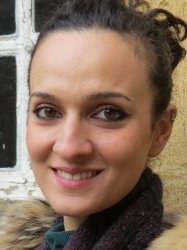Studying at the University of Verona
Here you can find information on the organisational aspects of the Programme, lecture timetables, learning activities and useful contact details for your time at the University, from enrolment to graduation.
Academic calendar
The academic calendar shows the deadlines and scheduled events that are relevant to students, teaching and technical-administrative staff of the University. Public holidays and University closures are also indicated. The academic year normally begins on 1 October each year and ends on 30 September of the following year.
Course calendar
The Academic Calendar sets out the degree programme lecture and exam timetables, as well as the relevant university closure dates..
| Period | From | To |
|---|---|---|
| primo semestre (lauree magistrali) | Oct 5, 2020 | Dec 23, 2020 |
| secondo semestre (lauree magistrali) | Mar 1, 2021 | Jun 1, 2021 |
| Session | From | To |
|---|---|---|
| sessione invernale | Jan 11, 2021 | Feb 12, 2021 |
| sessione estiva | Jun 7, 2021 | Jul 23, 2021 |
| sessione autunnale | Aug 23, 2021 | Sep 17, 2021 |
| Session | From | To |
|---|---|---|
| sessione autunnale (validità a.a. 2019/20) | Dec 9, 2020 | Dec 11, 2020 |
| sessione invernale (validità a.a. 2019/20) | Apr 7, 2021 | Apr 9, 2021 |
| sessione estiva (validità a.a. 2020/21) | Sep 6, 2021 | Sep 8, 2021 |
| Period | From | To |
|---|---|---|
| Vacanze di Natale | Dec 24, 2020 | Jan 6, 2021 |
| Vacanze di Pasqua | Apr 3, 2021 | Apr 6, 2021 |
| Vacanze estive | Aug 9, 2021 | Aug 15, 2021 |
Exam calendar
Exam dates and rounds are managed by the relevant Economics Teaching and Student Services Unit.
To view all the exam sessions available, please use the Exam dashboard on ESSE3.
If you forgot your login details or have problems logging in, please contact the relevant IT HelpDesk, or check the login details recovery web page.
Should you have any doubts or questions, please check the Enrollment FAQs
Academic staff
 maurizio.malpede@univr.it
maurizio.malpede@univr.it
 martina.menon@univr.it
martina.menon@univr.it

Vannucci Virginia
 virginia.vannucci@univr.it
virginia.vannucci@univr.it
Study Plan
The Study Plan includes all modules, teaching and learning activities that each student will need to undertake during their time at the University.
Please select your Study Plan based on your enrollment year.
1° Year
| Modules | Credits | TAF | SSD |
|---|
1 module between the following2° Year activated in the A.Y. 2021/2022
| Modules | Credits | TAF | SSD |
|---|
2 modules among the following2 modules among the following1 module between the following| Modules | Credits | TAF | SSD |
|---|
1 module between the following| Modules | Credits | TAF | SSD |
|---|
2 modules among the following2 modules among the following1 module between the following| Modules | Credits | TAF | SSD |
|---|
Legend | Type of training activity (TTA)
TAF (Type of Educational Activity) All courses and activities are classified into different types of educational activities, indicated by a letter.
Local Economic Development (2021/2022)
Teaching code
4S003742
Academic staff
Coordinator
Credits
9
Language
English
Scientific Disciplinary Sector (SSD)
SECS-P/02 - ECONOMIC POLICY
Period
secondo semestre (lauree magistrali) dal Feb 21, 2022 al May 13, 2022.
Learning outcomes
The course introduces the concept of Local Economic and Community Development defined in a multidisciplinary and holistic perspective. The course is also based on a wide range of case studies and introduces students to the main theories of growth and economic and social development. It also describes the factor markets fostering the development process including also the relevance of public and environmental goods paying special attention to the smart governance of communities, the collective decision making mechanisms, and the sustainable management of land and environment. At the end of the course students should be able to: apply impact evaluation tools based on the use of Social Accounting Matrices augmented to account for information on the employment structure of each economic sector, the impact on environmental sustainability, migration and worker mobility; demonstrate that have acquired in-depth applied knowledge and understanding of relevant economic concepts; develop solid judgment autonomy and high communication and learning skills in order to apply such knowledge to the solution of major local development problems both at national and international level.
Program
Community (Local) Economic Development Theory.
1. Defining Community (Local) Economic Development.
2. Growth Theory.
3. Space and Community Economics.
4. Concepts of Community Markets. Community Factor Markets.
5. Land Markets.
6. Labor Markets.
7. Financial Capital Markets.
8. Technology and Innovation.
9. Nonmarket Goods and Services: Amenities.
10. Local Government and Public Goods.
Institutions and the Art of Community Economics.
11. Institutions and Society.
12. Policy Modeling and Decision-Making.
13. The Practice of Community Economic Development.
Tools of Community Economics.
14. Descriptive Tools of Community Economic Analysis.
15. Inferential Tools of Community Economic Analysis: fixed-Price Models (Social Accounting Matrices (SAM).
16. Inferential Tools of Community Economic Analysis: Price: Endogenous Models (Computable General Equilibrium CGE).
17. Socio-economic-environmental impact assessments and cost-benefit analyzes using SAM and CGE
18. Looking to the Future.
Bibliography
Examination Methods
50% scientific work in English, 30% exercises, 20% participation in class
Objectives of the assessment tests
The written test is intended to ascertain the knowledge of the topics discussed in class and the ability to apply the logical schemes to the various themes proposed.
Participation in the classroom is verified through the student's active presence and the quality of the argument placing special attention to the scientific readings proposed during the course.
The analytical capacity is verified through the exercises done at home either in pencil or using the Gams or Stata language. The approach is "learning by doing."
Content and method of carrying out the assessment tests
The written exam is about the writing of an applied scientific work chosen by the student in concert with the teacher on a subject related to the materials presented in the course as they are shown in the syllabus delivered to the student at the opening of the course and can be consulted on the dedicated e-learning site. The scientific work is discussed at the end of the course with a professional presentation in the presence of all the students who are required to take an active and critical participation to the work presented.
Non attending and ERASMUS students are requested to contact the teacher at the beginning of the course to agree on the procedures for the assessment tests.
Type D and Type F activities
| years | Modules | TAF | Teacher |
|---|---|---|---|
| 1° | Future matters | D |
Alessandro Bucciol
(Coordinator)
|
| 1° | Future matters | D |
Alessandro Bucciol
(Coordinator)
|
| years | Modules | TAF | Teacher |
|---|---|---|---|
| 1° | The fashion lab (1 ECTS) | D |
Maria Caterina Baruffi
(Coordinator)
|
| 1° | The fashion lab (2 ECTS) | D |
Maria Caterina Baruffi
(Coordinator)
|
| years | Modules | TAF | Teacher |
|---|---|---|---|
| 1° | Design and Evaluation of Economic and Social Policies | D |
Federico Perali
(Coordinator)
|
| 1° | Public debate and scientific writing - 2020/2021 | D |
Martina Menon
(Coordinator)
|
| 1° | Wake up Italia - 2020/2021 | D |
Sergio Noto
(Coordinator)
|
| years | Modules | TAF | Teacher | |
|---|---|---|---|---|
| 1° | Professional Communication for Economics | D |
Claudio Zoli
(Coordinator)
|
|
| 1° 2° | Business analytics: make your data make an impact - 2020/2021 | D |
Claudio Zoli
(Coordinator)
|
|
Career prospects
Module/Programme news
News for students
There you will find information, resources and services useful during your time at the University (Student’s exam record, your study plan on ESSE3, Distance Learning courses, university email account, office forms, administrative procedures, etc.). You can log into MyUnivr with your GIA login details: only in this way will you be able to receive notification of all the notices from your teachers and your secretariat via email and soon also via the Univr app.
Graduation
Doppio Titolo
Grazie ad una rete di accordi con Atenei esteri, l’Università di Verona offre percorsi formativi internazionali che consentono l’acquisizione di un doppio titolo di studio. L’ammissione ad un CdS a doppio titolo consente di conseguire contemporaneamente, nel tempo di un normale ciclo di studi (di cui una parte viene svolta all'estero), sia il titolo di studio dell’Università di Verona che il titolo rilasciato dall'Ateneo partner, garantendo di vedere riconosciuto il diploma di laurea in entrambi i Paesi.
L'accesso al doppio titolo (così come l’eventuale sostegno finanziario) è regolato da uno specifico bando, e il numero di posti è limitato.

 045 8028 508
045 8028 508




























